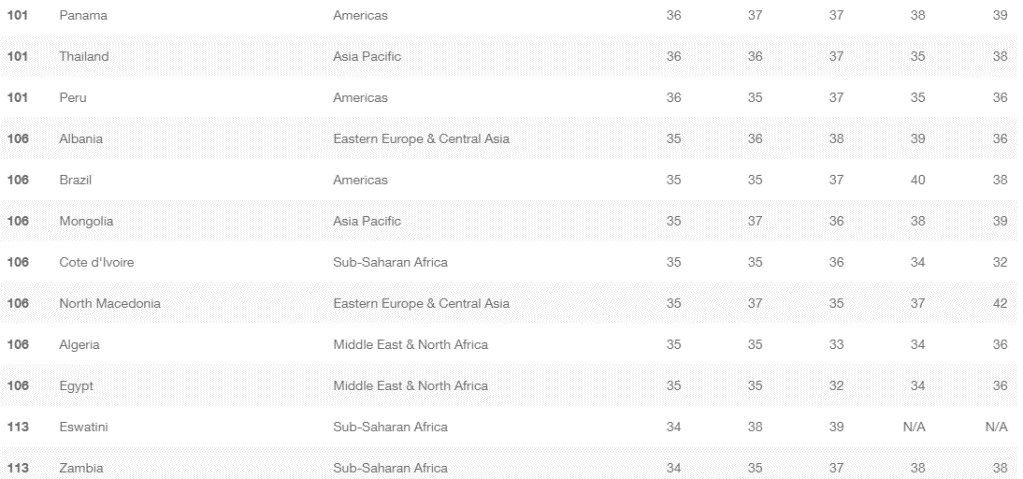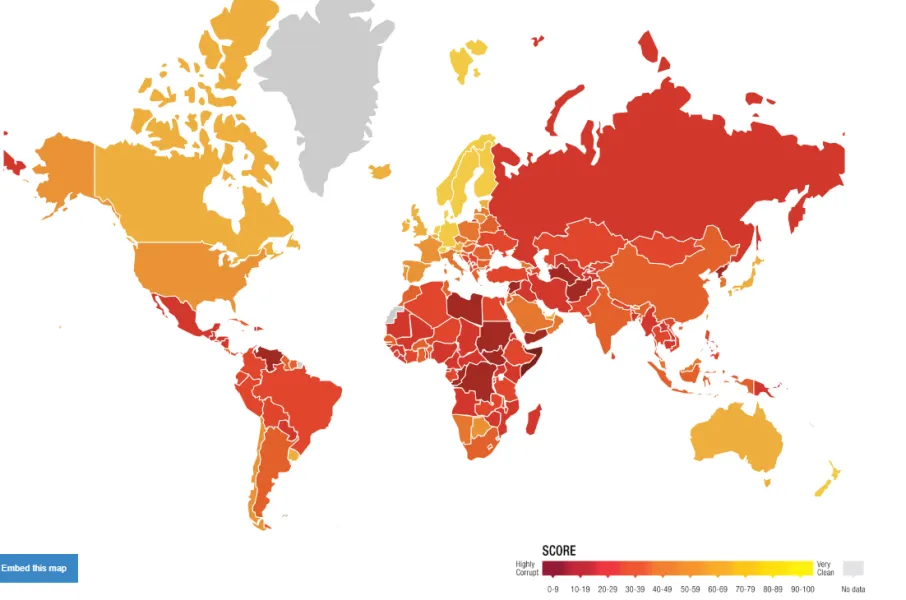
Corruption Perceptions Index or simply CPI is an index created by a non-governmental organization named Transparency International (www.transparency.org), which, among other purposes, has set out to monitor countries’ progress in fighting corruption around the world.
This is a serious and unprecedented work, which has led some multinationals to use this index in the risk rating of third parties, whether suppliers or customers and even, of their own affiliates, according to the country in which they are located.
Below, you can find the ranking of the top 10:
New Zealand, Denmark and Finland are countries that traditionally take turns in the top positions of this ranking.
Perhaps the biggest surprise is Switzerland … until a few years ago a bank secrecy law was so severe that it tied Switzerland with a safe for money of any kind, including, illicit one. Stories are notorious that if someone wanted to hide money, they would deposit it in a Swiss bank. Only in 2017 did Switzerland end this banking secrecy in the face of international pressure and requests from foreign police authorities, for which, until then, any information was denied or hindered. However, as the index – CPI – measures corruption, such detail was not considered. However, traveling around Switzerland today is getting a lesson in how to run a country. Some examples: garbage has a bar code and is separated and weighed when collected; refugees have their own settlements in smaller cities, organized in small but dignified houses and curiously with a flag from their country to identify their origin in front of their home; trams (similar to Rio’s tram) are an example of urban mobility that work very well in large cities such as Zurich, Bern and Geneva, for example; there is no need to use money, since credit / debit cards and electronic transactions by cell phone are already a constant, even for small expenses, etc …
And Brazil? In 2019, Brazil ranked 106th place with a score of only 35 points. In the ranking below, we see the evolution of the Brazilian score in recent years, it is important to note that the higher the number of points, the less corrupt the country is supposed to be:
Those who wish to learn more about the topic can visit the Transparency International website, described above, or download their brochure entitled “Global Corruption Barometer: Latin America and the Caribbean 2019” at: https: //www.transparency.org/whatwedo/pub/global_corruption_barometer_latin_america_and_the_caribbean_2019

